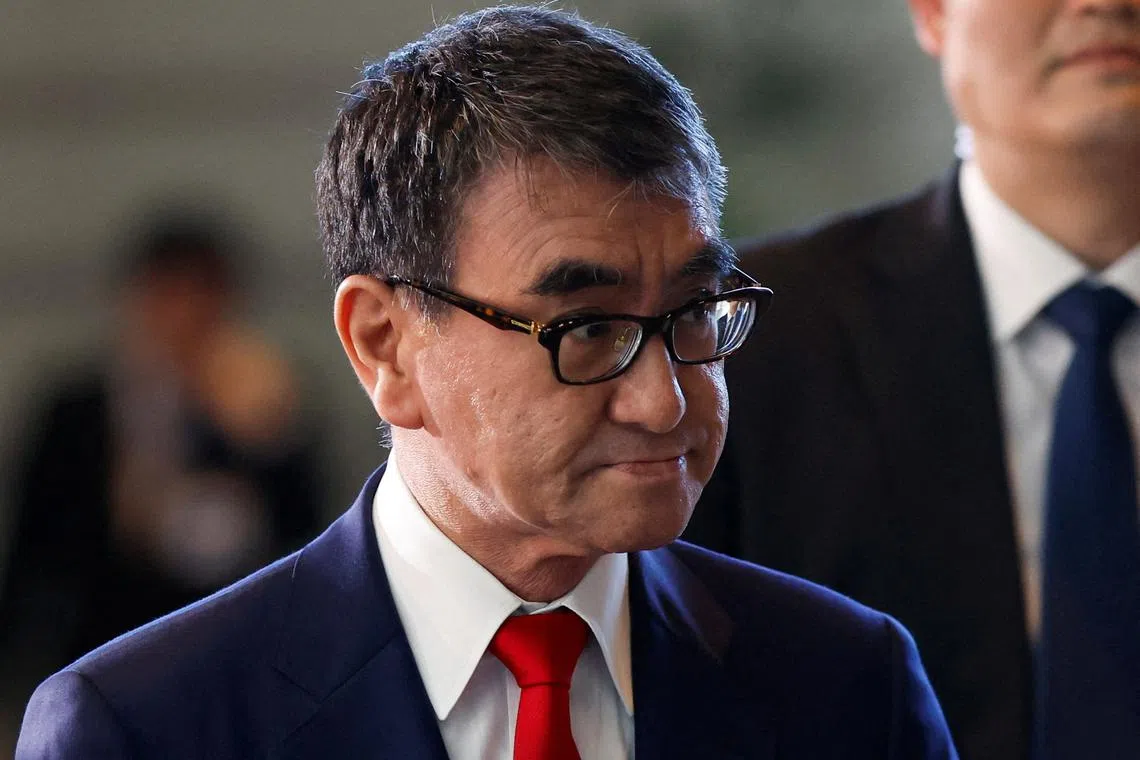Japan PM hopeful Taro Kono calls for US assurances to deter nuclear ambitions
Sign up now: Get insights on Asia's fast-moving developments

Mr Taro Kono also said he would reform labour markets to help boost salaries for part-time workers.
PHOTO: REUTERS
TOKYO – Tokyo should seek stronger assurances from Washington about its commitment to Japan’s nuclear defence, in order to deflect concerns that could fuel domestic calls for an independent nuclear arsenal, said Mr Taro Kono, a prime ministerial contender.
Mr Kono, who oversees Japan’s digital transformation and has been both foreign and defence minister, made the comment amid uncertainty over November’s US presidential election fought by Vice-President Kamala Harris and former president Donald Trump.
“If the US government becomes unstable, some people in Japan might suggest that Japan develop an independent nuclear deterrent,” Mr Kono told Reuters in an interview on Sept 6.
“However, if Japan were to declare its intention to abandon nuclear disarmament, South Korea and others might follow suit.”
The only nation to have suffered atomic bomb attacks, Japan has long renounced nuclear weapons, relying instead on the US to deter potential nuclear-armed rivals such as China, North Korea and Russia.
In the past, however, Trump has stoked concern about that US commitment by suggesting that Japan pay the US to defend it, including with nuclear weapons.
Japan’s large plutonium stockpile and access to advanced technology, such as rockets developed for its space programme, mean it has many of the components to build nuclear missiles.
Doing so would hurt rather than strengthen Japan’s national security, said Mr Kono, because apart from proliferation risks, it would probably cut off access to the nuclear fuel Japan needs for its power plants at a time of tight energy supplies.
Mr Kono is one of about 10 ruling Liberal Democratic Party members who have said they will run, or are considering joining, a leadership election on Sept 27 to replace Prime Minister Fumio Kishida
That contest comes amid rising consumer prices, a weak yen and sluggish economic growth.
Mr Kono said he would reform labour markets to help boost salaries for part-time workers, and support measures to retrain workers for higher-paying jobs and use data-driven technology to boost productivity.
He added that a stronger yen would benefit Japan’s economy after the currency’s decline, which stood at 142 against the dollar on Sept 6, from 114 when Mr Kishida entered office in 2021.
“The Japanese economy will be better off with a stronger yen than before,” he said. “I think whatever the rate is, it needs to be stable.” REUTERS


